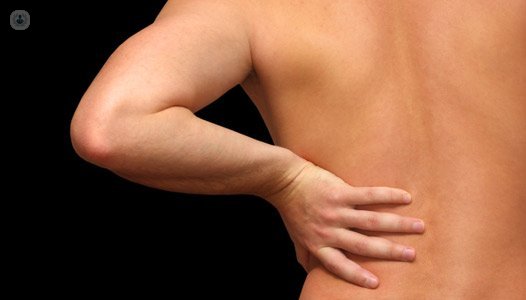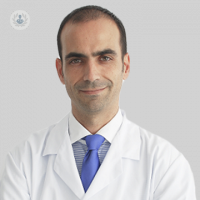Prevent kidney stones is possible
Written by:Repeat renal colic may be a reflection of widespread disease of the body, not just kidney. Although the chances of suffering can be determined by various factors, one can considerably reduce a healthy lifestyle and proper hydration and nutrition.

What is a renal colic or urinary stone risk factors
Renal colic is a painful condition caused by the passage of a urinary stone. The formation of these calculations may be due to specific circumstances (therefore not be repeated) or may be a reflection of widespread disease of the body, kidney or its tracks.Among the general risk factors are as important:- Overweight or obese- Hypertension- Diabetes- Improper hydration: Low intake of water or sugary drinks- Incorrect Supply: Excess protein or dietary sodium
Possibility of having a renal colic
The current way of life is causing this disease increase its presence. Approximately 10 out of 100 men and 7 out of every 100 women suffer throughout their lives. This figure, even though it could be under-reported because of the possibility of developing urinary stones indolent or without resorting to hospital way and, therefore, not be diagnosed.If you have already suffered an episode, recurrence unlike with other diseases (appendicitis, for example). Thus, the risk of forming new stones is 50% in the 10 years since.
Prevention and treatment of renal colic repeat
The effort to prevent its occurrence will be performed on the patient fully (diet, lifestyle and other associated diseases) and not just based on the results of radiological examinations and / or analysis.There are many drug therapies in urology to prevent the occurrence of lithiasis. For the existing clinical evidence and literature previously require indications of specific analytical tests, known as metabolic study. In this study the majority of diseases that may predispose to stone recurrence, such as alterations in calcium metabolism (hyperparathyroidism) or the composition of the urine (hypercalciuria, hypocitraturia, Hyperuricosuria ...) are investigated.Each of these diseases has different treatment. In addition to the analytical studies, the determination of the composition of the stone, whenever possible, will complement the decision of the appropriate medicine.It is important to note that the onset of these treatments do not exclude dietary changes that have previously recommended and delving into the concept of the need for an overall change in lifestyle, for effective prevention of new episodes, and not take another pill more daily.
Addressing medical form to a patient with recurrent renal colic
For a full evaluation of this type of disease, should simultaneously consider the following sequentially:1) comprehensive evaluation of gallstone problem:-Charging Lithiasic: Number and size of stones present in both kidneys and urinary tract.- Changes in urinary function, present apparatus initial or secondary to the injury caused by expulsive previous episodes.2) dietary and lifestyle study, focused on assessing the risk of recurrence Recalculation:- Number and distribution of fluid intake during the day- Quantity and quality of food eaten- Habits or risky activities3) Analysis of stone composition (if possible) is usually done by infrared spectroscopy, high reliability technique.4) basic or comprehensive metabolic study (depending on the previous evaluations): It consists in carrying out a blood test associated with urine for 24 hours. In it the anomalous presence of the components involved in stone formation is analyzed.The start of targeted therapies based on these findings has proved more effective than less specific treatments.


